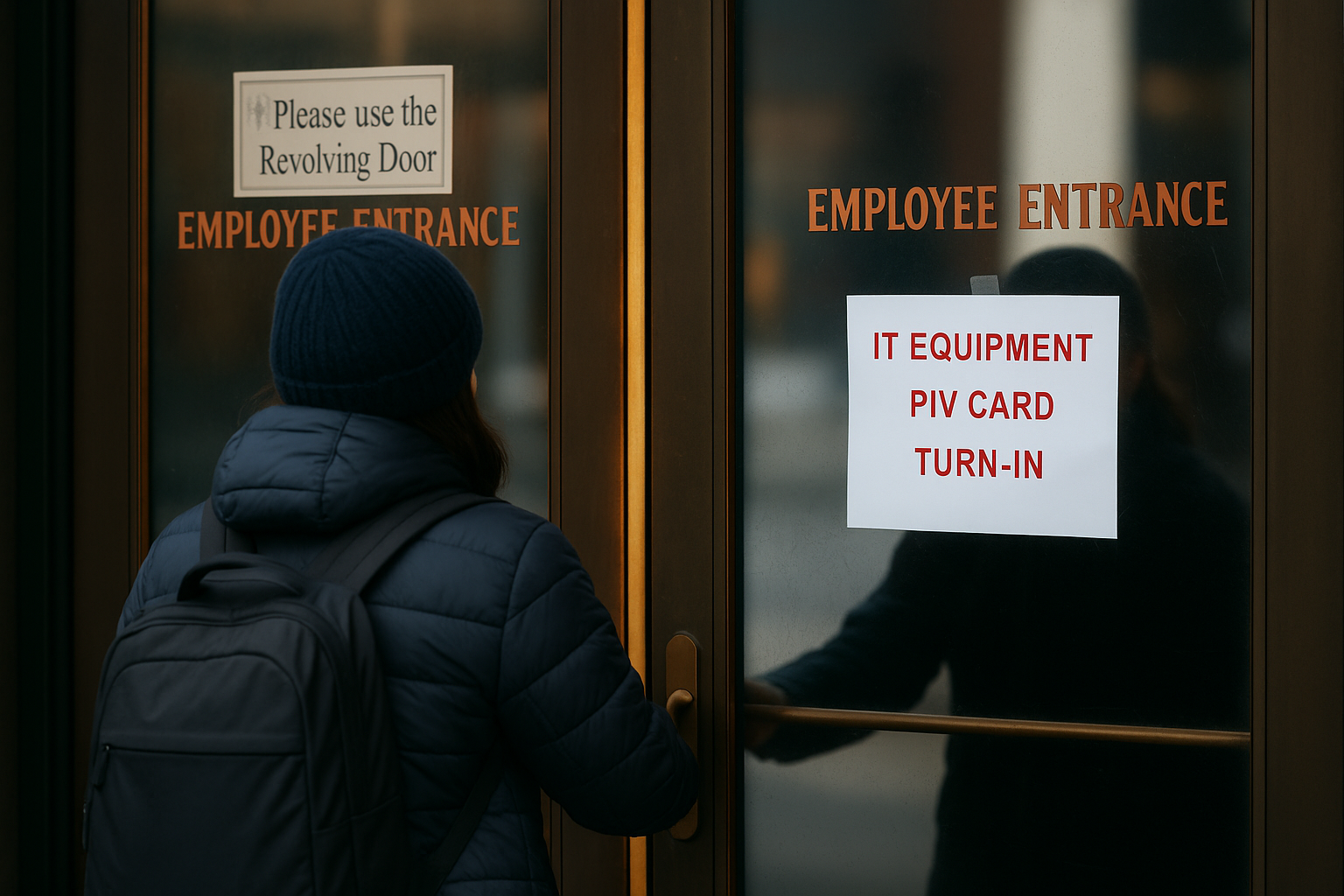Whether you faced a RIF, accepted a buyout, or were caught in unexpected cuts — here’s how to take control, rebuild your career, and protect your future.
Introduction
Why So Many Federal Workers Are Being Laid Off in 2025
Thousands of laid off federal workers are facing a difficult transition due to reductions in force (RIFs), early retirements, and agency restructuring. These changes often leave employees without clear direction and without warning.
What This Guide Offers
This guide outlines 10 proven steps that will help you recover financially, emotionally, and professionally. As a result, you’ll feel more confident moving forward. In fact, many others have used these exact tips to find success after federal service.
1. Laid Off Federal Workers: Start with a Clear Personal Inventory
To begin with, take a moment before jumping into applications or financial planning. Acknowledge the loss, reflect on your strengths, and begin building a clear picture of where you stand—skills, savings, and support. This step grounds your next moves in reality.
2. Watch: 10 Actions to Shorten Your Job Search
Next, watch this popular YouTube video by career coach Madeline Mann. She outlines a practical plan that works—even in a saturated job market. Federal employees will especially benefit from her segments on networking, reframing experience, and updating résumés after a long tenure.
3. Learn from Others: How to Get Back on Your Feet After Being Laid Off
This Glamour article shares honest stories from people who faced layoffs and came out stronger. The key takeaway? You’re not starting from zero—you’re starting from experience. Therefore, your future is still full of potential.
4. Translate Your Federal Experience for Private Sector Résumés
Federal résumés tend to be long and filled with jargon. However, private-sector hiring managers want to see concise, impact-driven summaries. Translate your experience into value: leadership, project management, and cross-agency collaboration.
For more tips on navigating your career after a federal layoff, check out our HR Insights Articles library, where we cover everything from résumé updates to executive job strategies.
5. Rebuild Your Network After Federal Layoff or Buyout
First, reach out to colleagues, supervisors, or professional contacts. Even if it feels uncomfortable, reconnecting can open doors. Update your LinkedIn with a forward-looking tone and say what you’re seeking next.
6. Be Strategic with Your Job Search Applications
Instead of applying everywhere, be intentional. Apply to jobs that align with your values and skills. Moreover, tailor each résumé and cover letter for the role. Employers can tell when it’s generic.
7. Know Your Rights: Federal Reemployment and CTAP Programs
Meanwhile, explore programs like CTAP and ICTAP. These resources exist to help federal workers find priority placements and retraining options. Knowing your eligibility can save time and reduce stress.
8. Layoff-Proof Your Finances: Build a 90-Day Safety Plan
Start by assessing your savings and monthly costs. Next, trim unnecessary expenses and build a 90-day lean budget. Apps like Mint or YNAB can help track and manage spending. This gives you breathing room while you job search.
9. Mental Health Tips for Laid Off Federal Workers
Job loss affects more than your paycheck. Therefore, prioritize your mental health. Join peer groups, speak with a counselor, or simply create daily routines like walking or journaling. You’re grieving more than a job—it’s part of your identity.
10. Set a Goal, Track Progress, and Celebrate Every Win
For example, set a 30-day milestone: apply to 10 tailored jobs, or network with 5 people. Track your actions and reward yourself. This builds motivation and momentum—two things you’ll need most.
Closing Thoughts
You’re Not Alone
These steps have helped thousands of laid off federal workers find clarity and new purpose. You are not the first to face this, and you won’t be the last. What’s more, support is out there.
This Is Your Restart, Not the End
If you’re among the growing number of laid off federal workers, know that recovery is not just possible—it’s happening every day. This isn’t just about bouncing back. In truth, it’s your opportunity to build forward, better than before.

